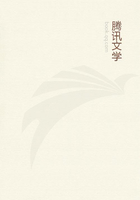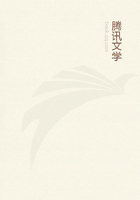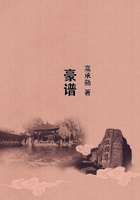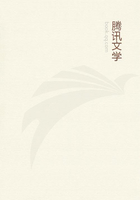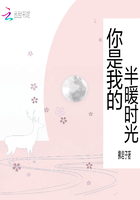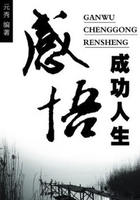Thus anger has two phases; there is firstly that which, rising apart from all process of reasoning, draws reason to itself by the medium of the imaging faculty, and secondly that which, rising in reason, touches finally upon the specific principle of the emotion.
Both these depend upon the existence of that principle of vegetal life and generation by which the body becomes an organism aware of pleasure and pain: this principle it was that made the body a thing of bile and bitterness, and thus it leads the indwelling soul-phase to corresponding states- churlish and angry under stress of environment- so that being wronged itself, it tries, as we may put it, to return the wrong upon its surroundings, and bring them to the same condition.
That this soul-vestige, which determines the movements of passion is of one essence [con-substantial] with the other is evident from the consideration that those of us less avid of corporeal pleasures, especially those that wholly repudiate the body, are the least prone to anger and to all experiences not rising from reason.
That this vegetal principle, underlying anger, should be present in trees and yet passion be lacking in them cannot surprise us since they are not subject to the movements of blood and bile.If the occasions of anger presented themselves where there is no power of sensation there could be no more than a physical ebullition with something approaching to resentment [an unconscious reaction]; where sensation exists there is at once something more; the recognition of wrong and of the necessary defence carries with it the intentional act.
But the division of the unreasoning phase of the soul into a desiring faculty and a passionate faculty- the first identical with the vegetal principle, the second being a lower phase of it acting upon the blood or bile or upon the entire living organism- such a division would not give us a true opposition, for the two would stand in the relation of earlier phase to derivative.
This difficulty is reasonably met by considering that both faculties are derivatives and making the division apply to them in so far as they are new productions from a common source; for the division applies to movements of desire as such, not to the essence from which they rise.
That essence is not, of its own nature, desire; it is, however, the force which by consolidating itself with the active manifestation proceeding from it makes the desire a completed thing.
And that derivative which culminates in passion may not unreasonably be thought of as a vestige-phase lodged about the heart, since the heart is not the seat of the soul, but merely the centre to that portion of the blood which is concerned in the movements of passion.
29.But- keeping to our illustration, by which the body is warmed by soul and not merely illuminated by it- how is it that when the higher soul withdraws there is no further trace of the vital principle?
For a brief space there is; and, precisely, it begins to fade away immediately upon the withdrawal of the other, as in the case of warmed objects when the fire is no longer near them: similarly hair and nails still grow on the dead; animals cut to pieces wriggle for a good time after; these are signs of a life force still indwelling.
Besides, simultaneous withdrawal would not prove the identity of the higher and lower phases: when the sun withdraws there goes with it not merely the light emanating from it, guided by it, attached to it, but also at once that light seen upon obliquely situated objects, a light secondary to the sun's and cast upon things outside of its path [reflected light showing as colour]; the two are not identical and yet they disappear together.
But is this simultaneous withdrawal or frank obliteration?
The question applies equally to this secondary light and to the corporeal life, that life which we think of as being completely sunk into body.
No light whatever remains in the objects once illuminated; that much is certain; but we have to ask whether it has sunk back into its source or is simply no longer in existence.
How could it pass out of being, a thing that once has been?
But what really was it? We must remember that what we know as colour belongs to bodies by the fact that they throw off light, yet when corruptible bodies are transformed the colour disappears and we no more ask where the colour of a burned-out fire is than where its shape is.
Still: the shape is merely a configuration, like the lie of the hands clenched or spread; the colour is no such accidental but is more like, for example, sweetness: when a material substance breaks up, the sweetness of what was sweet in it, and the fragrance of what was fragrant, may very well not be annihilated, but enter into some other substance, passing unobserved there because the new habitat is not such that the entrant qualities now offer anything solid to perception.
May we not think that, similarly, the light belonging to bodies that have been dissolved remains in being while the solid total, made up of all that is characteristic, disappears?
It might be said that the seeing is merely the sequel to some law [of our own nature], so that what we call qualities do not actually exist in the substances.
But this is to make the qualities indestructible and not dependent upon the composition of the body; it would no longer be the Reason-Principles within the sperm that produce, for instance, the colours of a bird's variegated plumage; these principles would merely blend and place them, or if they produced them would draw also on the full store of colours in the sky, producing in the sense, mainly, of showing in the formed bodies something very different from what appears in the heavens.

